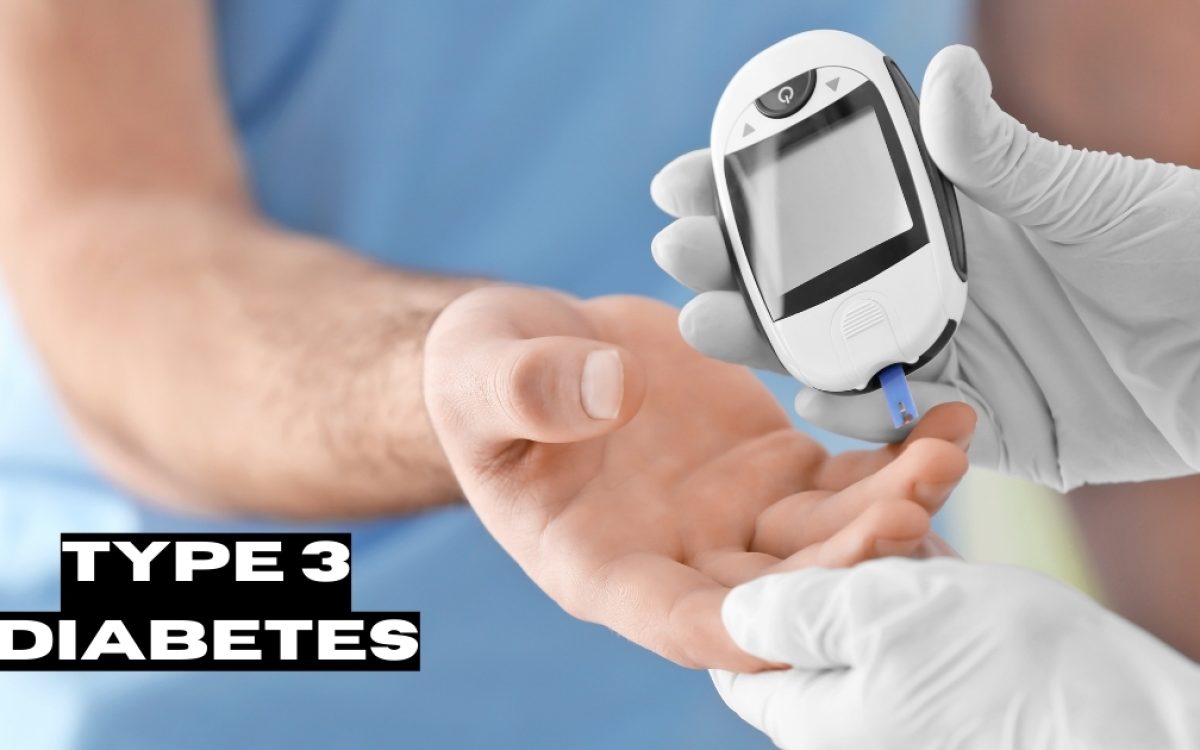Picture this: You’re in the prime of your life, enjoying cherished memories with loved ones, when suddenly, you start noticing subtle changes in your cognitive abilities. Simple tasks become challenging, and memories slip through your fingers like grains of sand. This is the reality for millions of individuals grappling with Type 3 diabetes, also known as Alzheimer’s disease.
This comprehensive guide will uncover the mysteries surrounding Type 3 diabetes and explore the tantalising possibility of reversal. From understanding the intricate causes and mechanisms to unravelling cutting-edge strategies for reclaiming cognitive health, we’ll leave no stone unturned in our quest for answers. Let’s shed light together on whether can type 3 diabetes be reversed.
Table of Contents
ToggleUnderstanding Type 3 Diabetes: Causes and Mechanisms
Now, let’s delve deep into what Type 3 diabetes is all about. Understanding the causes and underlying mechanisms is crucial before delving into potential reversal strategies. Let’s shed light together on whether type 3 diabetes can be reversed.
Type 3 diabetes, often referred to as Alzheimer’s disease, is a relatively new concept in the realm of diabetes. It’s characterised by insulin resistance in the brain, leading to cognitive decline and memory problems.

Now, how does insulin resistance in the brain even happen? Well, research suggests that the same factors contributing to Type 2 diabetes can also play a role in Type 3 diabetes. Factors like obesity, poor diet, sedentary lifestyle, and genetics can all contribute to insulin resistance in the body and brain.
Imagine this: Just like the rest of your body, your brain cells need energy to function correctly. Insulin acts as a key, unlocking cells to allow glucose (sugar) to enter and provide energy. When cells become resistant to insulin, they struggle to get the energy they need, leading to dysfunction and ultimately contributing to cognitive decline.
Research has shown that high levels of insulin in the brain can also lead to the formation of beta-amyloid plaques, a hallmark of Alzheimer’s disease. These plaques interfere with communication between brain cells, further exacerbating cognitive decline.
But it’s not all doom and gloom! Understanding the causes and mechanisms of Type 3 diabetes is the first step towards exploring potential reversal strategies. By addressing underlying insulin resistance and making lifestyle modifications, it’s possible to slow down or even reverse cognitive decline associated with Type 3 diabetes.
Stay tuned as we explore lifestyle modifications, dietary changes, exercise regimens, and more strategies to tackle Type 3 diabetes head-on. Together, we’ll unlock the secrets to reversing this debilitating condition and reclaiming cognitive health.
Lifestyle Modifications: A Cornerstone of Reversal

Regarding reversing Type 3 diabetes, lifestyle modifications emerge as the cornerstone of success. These changes aren’t just about tweaking a few habits but transforming your entire approach to health and well-being. Let’s explore how simple lifestyle adjustments can pave the way for a brighter, healthier future.
Diet Overhaul:
Revamping your diet is one of the most potent tools against Type 3 diabetes. Focus on whole foods rich in nutrients and fibre, such as fruits, vegetables, whole grains, and lean proteins. Minimize processed foods, sugary treats, and refined carbohydrates, which can wreak havoc on blood sugar levels.
Regular Exercise:
Physical activity isn’t just beneficial for your waistline; it’s also a game-changer for managing Type 3 diabetes. Aim for at least 30 minutes of moderate-intensity exercise most days of the week. Whether it’s brisk walking, cycling, swimming, or yoga, find activities you enjoy and make them a regular part of your routine.
Stress Management:
Chronic stress can wreak havoc on your blood sugar levels and exacerbate insulin resistance. Incorporate stress-reducing activities into your daily routine, such as meditation, deep breathing exercises, or spending time in nature. Prioritize self-care and carve out moments of calm amidst life’s chaos.
Quality Sleep:
Did you know that inadequate sleep can disrupt your body’s ability to regulate blood sugar? Aim for 7-9 hours of quality sleep each night to support optimal metabolic function and cognitive health. Establish a relaxing bedtime routine and create a sleep-friendly environment to enhance your chances of rest.
Social Support:
Navigating the journey of Type 3 diabetes reversal can feel overwhelming at times. Surround yourself with a supportive network of friends, family, and healthcare professionals who understand your goals and cheer you on every step of the way. Sharing your struggles and triumphs with others can provide invaluable encouragement and motivation.
By making these lifestyle modifications a priority, you’re not only taking control of your Type 3 diabetes but also investing in your long-term health and vitality. Remember, every small change you make today brings you closer to a brighter, healthier tomorrow.
Crafting an Effective Diet Plan for Type 3 Diabetes Reversal

Crafting a diet plan tailored specifically for Type 3 diabetes reversal is crucial to reclaiming cognitive health and overall well-being. Let’s delve into the essential components of an effective dietary strategy.
Whole Foods Focus:
Centre your diet around whole, unprocessed foods rich in nutrients and fibre. Incorporate many colourful fruits, vegetables, whole grains, nuts, seeds, and lean proteins into your meals. These foods provide essential nutrients and antioxidants that support brain function and metabolic health.
Fiber-Rich Choices:
Prioritize foods high in dietary fibre, such as fruits, vegetables, legumes, and whole grains. Fibre helps slow down the absorption of sugar into the bloodstream, preventing spikes in blood sugar levels and promoting satiety.
Minimize Refined Carbs and Sugary Treats:
Limit your intake of refined carbohydrates and sugary treats, which can lead to blood sugar spikes and exacerbate insulin resistance. Opt for healthier alternatives like whole grains, sweet potatoes, and natural sweeteners in moderation.
Hydration Matters:
Stay adequately hydrated by drinking plenty of water throughout the day. Limit consumption of sugary beverages and opt for water, herbal teas, and sparkling water instead. Proper hydration supports overall health and can help regulate blood sugar levels.
Discover the benefits of hydration for diabetes.
By prioritizing whole, nutrient-dense foods, increasing fibre intake, minimizing refined carbs and sugary treats, and staying hydrated, you can create a diet plan that supports Type 3 diabetes reversal and promotes cognitive health.
Exercise Regimens Tailored for Type 3 Diabetes Management
Regular physical activity is a cornerstone of Type 3 diabetes management, improving insulin sensitivity, controlling blood sugar levels, and enhancing overall well-being. Here’s how to tailor your exercise regimen for optimal management.
Enjoyable Activities:
Select activities that you genuinely enjoy and look forward to. Whether walking, cycling, swimming, dancing, or yoga, choose exercises that bring you joy and make them a regular part of your routine.
Consistency is Key:
Consistency is crucial for reaping the benefits of exercise. Aim for at least 30 minutes of moderate-intensity exercise most days of the week. Gradually increase the duration and intensity as your fitness level improves.
Incorporate Strength Training:
Include strength training exercises to improve muscle mass, boost metabolism, and enhance insulin sensitivity. Aim for resistance exercises targeting major muscle groups at least twice a week.
Listen to Your Body:
Pay attention to your body’s signals and adjust your exercise regimen. If you experience discomfort or pain, modify your activities or seek guidance from a healthcare professional.
By finding enjoyable activities, maintaining consistency in your exercise routine, incorporating strength training, and listening to your body, you can effectively manage Type 3 diabetes and improve your overall health and well-being.
Medications and Supplements: Enhancing Reversal Efforts

While lifestyle modifications form the foundation of Type 3 diabetes reversal, medications and supplements can also significantly enhance your efforts. Let’s explore how these interventions can support your journey toward reclaiming cognitive health.
Medications for Blood Sugar Control:
For some individuals with Type 3 diabetes, medications such as insulin sensitizers or glucose-lowering drugs may be prescribed to help regulate blood sugar levels. These medications improve the body’s response to insulin or reduce the amount of glucose produced by the liver.
Supplements to Support Brain Health:
Certain supplements may also be beneficial for supporting cognitive function and overall brain health in individuals with Type 3 diabetes. These may include omega-3 fatty acids, vitamin D, alpha-lipoic acid, and curcumin. However, consulting with a healthcare professional before starting any new supplement regimen is essential.
Blood Pressure and Cholesterol Medications:
Managing blood pressure and cholesterol levels is crucial for cardiovascular health and is closely linked to cognitive function. Medications such as ACE inhibitors, beta-blockers, and statins may be prescribed to help control blood pressure and cholesterol levels in individuals with Type 3 diabetes.
Monitoring and Adjusting Medication Regimens:
Working closely with your healthcare team to monitor your medication response and make any necessary adjustments to your regimen is essential. Regular blood tests and check-ups can help ensure that your medications are effectively supporting your efforts toward Type 3 diabetes reversal.
By incorporating medications and supplements into your treatment plan under the guidance of a healthcare professional, you can optimize your chances of success in reversing Type 3 diabetes and reclaiming cognitive health.
Natural Remedies and Therapies: Complementary Approaches
In addition to conventional treatments, natural remedies and therapies can offer complementary approaches to Type 3 diabetes reversal. Let’s explore some of these alternative interventions and their potential benefits.
Dietary Supplements:
Certain dietary supplements may benefit blood sugar control and cognitive function in individuals with Type 3 diabetes. Examples include cinnamon, chromium, berberine, and ginseng. However, it’s essential to consult with a healthcare professional before adding any new supplements to your regimen.
Herbal Remedies:
Some herbal remedies have been traditionally used to support overall health and well-being, including cognitive function. Examples include ginkgo biloba, ashwagandha, bacopa monnieri, and gotu kola. However, scientific evidence supporting their efficacy in Type 3 diabetes reversal is limited, so it’s essential to approach them cautiously.
Mind-Body Therapies:

Mind-body therapies such as meditation, yoga, acupuncture, and massage therapy can help reduce stress levels, improve relaxation, and promote overall well-being. These practices may complement conventional treatments for Type 3 diabetes by addressing the mind-body connection.
Aromatherapy and Essential Oils:

Aromatherapy, which involves using essential oils derived from plants, may also be beneficial for managing stress and promoting relaxation. Certain essential oils, such as lavender, bergamot, rosemary, and peppermint, are thought to have calming and mood-boosting effects.
While natural remedies and therapies can offer additional support for Type 3 diabetes reversal, it’s essential to use them in conjunction with conventional treatments and under the guidance of a healthcare professional. By taking a holistic approach to your health, you can optimize your chances of success in reversing Type 3 diabetes and reclaiming cognitive health.









